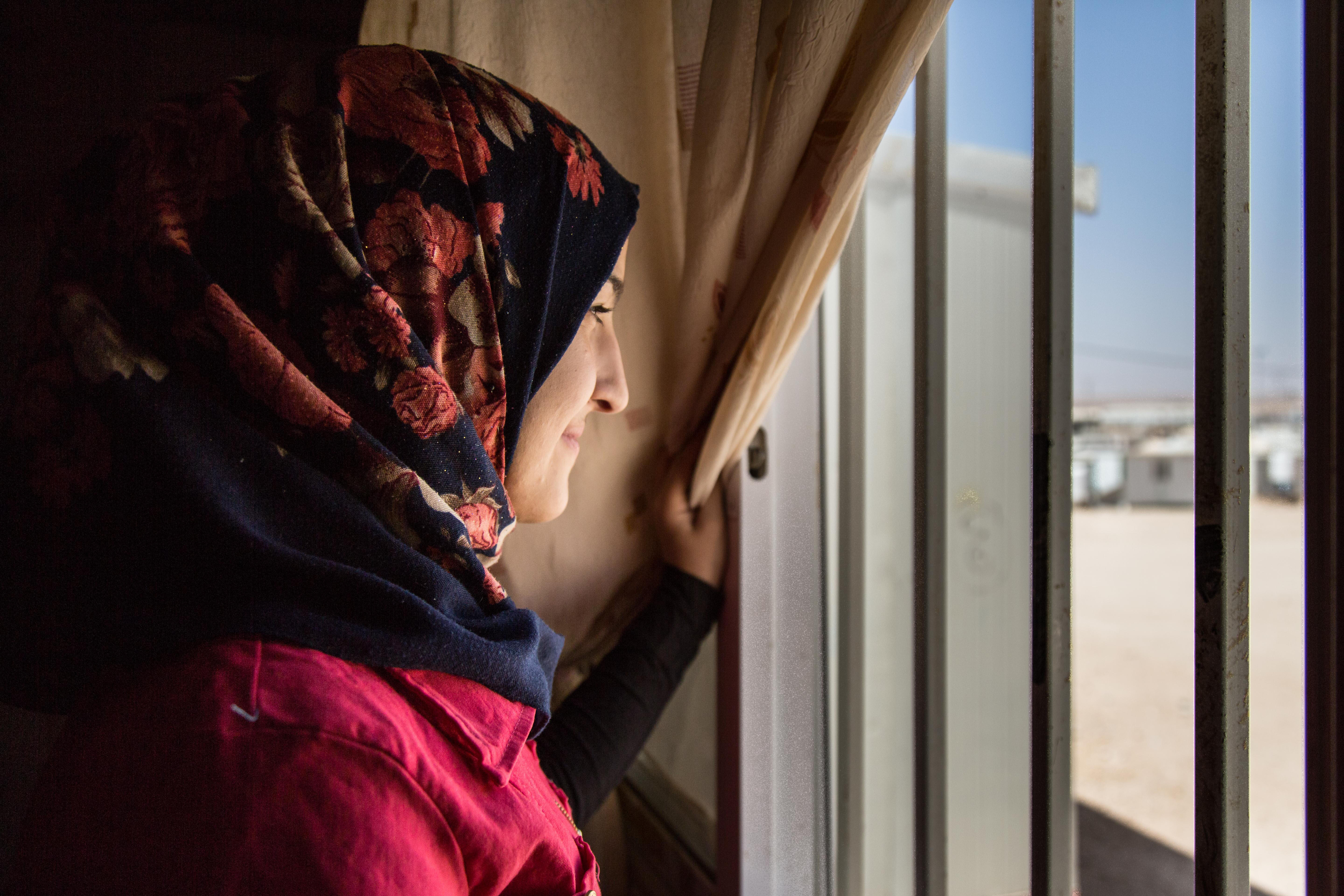Nine things you need to know about periods and the pandemic
27 May 2020
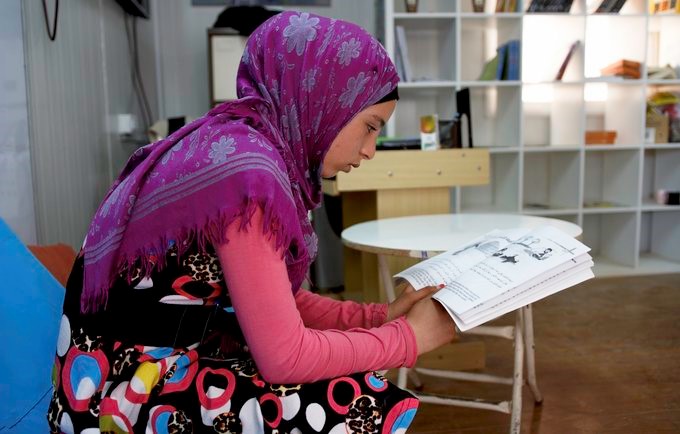

This article is a joint collaboration between UNFPA and UNICEF, lead agencies in the effort to ensure the health and rights of all people who menstruate. See a version of this article on UNICEF' s website
UNITED NATIONS, New York -- Menstruation is misunderstood and stigmatized around the world, a fact likely to worsen under the COVID-19 pandemic. Below are nine things you need to know about periods and the pandemic -- and what the world needs to do about it.
1. Menstruation is not a sign of illness or COVID-19
Menstruation is healthy and normal. It is not a sign of illness. But myths about menstruation and COVID-19 are circulating.
In China, for instance, people have reported hearing that menstruation increases one’s vulnerability to the coronavirus. In Tanzania, rumours hold that menstruation is a symptom of COVID-19, or that menstruating people are more likely to transmit the illness. There is no medical basis to these myths, which could increase the stigma surrounding menstruation.
But the pandemic is having an impact on how people experience menstruation. Pandemic-related movement restrictions and health facility closures are affecting access to sexual and reproductive health services, including care for menstruation-related disorders such as endometriosis or migraines. The economic fallout is affecting access to menstruation supplies, and heightened stress could affect menstrual cycles and menstruation-related physical and emotional discomfort (PMS).
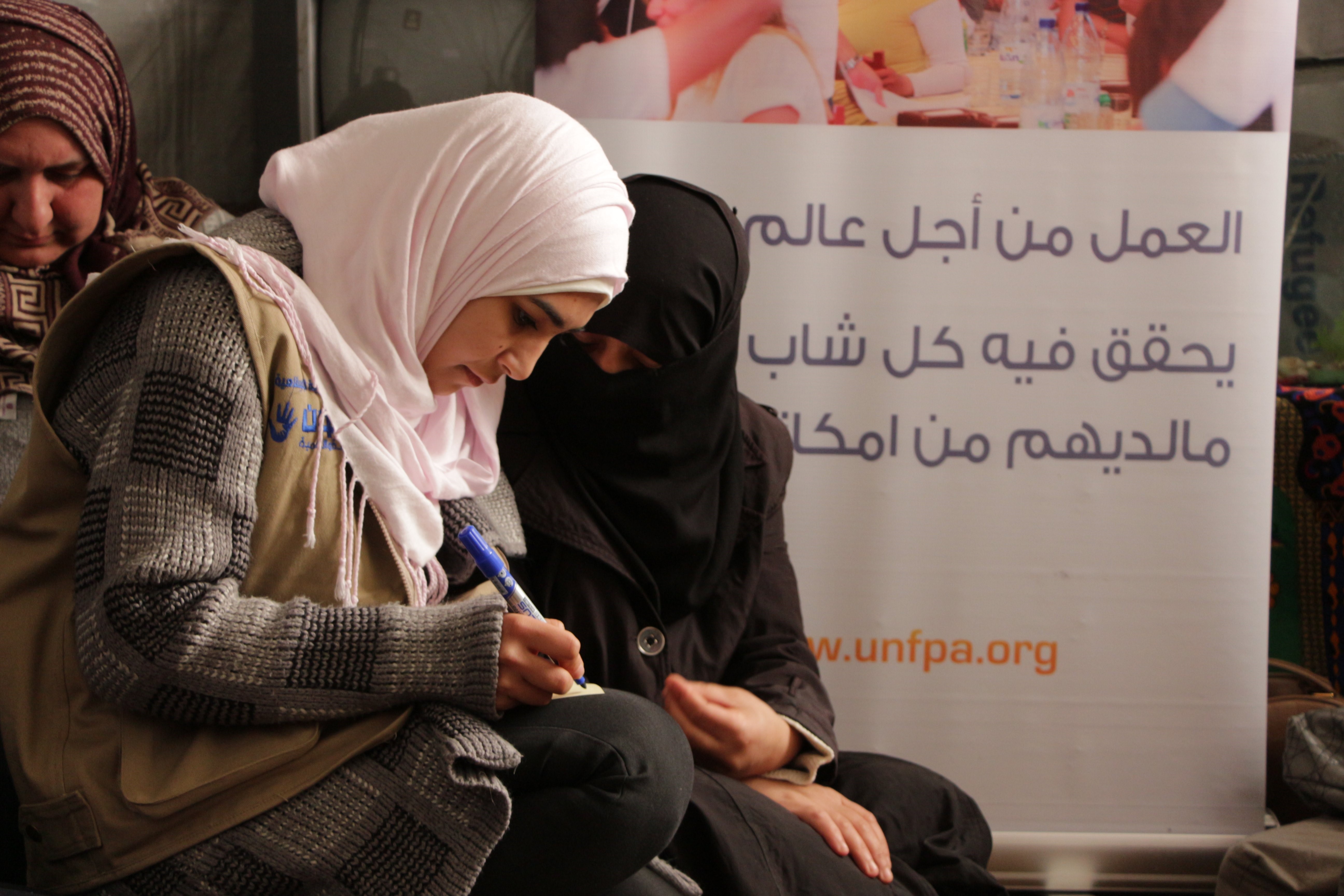
 Syria-Listening to women’s need while visiting UNFPA-supported shelter in Homs ©UNFPA Syria
Syria-Listening to women’s need while visiting UNFPA-supported shelter in Homs ©UNFPA Syria
2. Menstrual supplies are essential items.
Stock-outs and supply chain disruptions mean that communities could lose access to sanitary pads, tampons and other menstrual materials. Decision-makers must assure these essential items remain available.
When sanitary pads were not initially listed as essential supplies during China’s lockdown, suppliers faced shipping problems, prompting decision-makers to take action. In India, policymakers listed sanitary napkins as essential commodities to remove barriers to their manufacture and supply. The United States has also moved to classify menstrual supplies as medical products.
There should be no ambiguity: These items -- including pads, tampons, menstrual cups, reusable napkins, pain medication and soap -- are a priority for the health, dignity and welfare of all people who menstruate.
Decision-makers must also respond to the heightened menstruation-related challenges faced by particular groups of people.
3. Health workers must have access to menstrual health supplies, and the means to regularly maintain their menstrual hygiene, in order to respond to the pandemic
Globally, some 70 per cent of the health workforce is female. Under the pandemic, they are working long, gruelling hours under intense pressure. Health personnel have called attention to their unmet menstrual health needs, which could impact the pandemic response.
Not only do health staff need access to menstrual hygiene materials, they also need the time, facilities and resources to manage their menstrual health. This is particularly true for front-line health workers in personal protective equipment (PPE).
“Putting on and removing PPE prevents quick changing of menstrual hygiene materials, leading women to bleed into protective suits, suppress menstruation through the use of oral contraceptive pills, or potentially miss days of work,” says recent UNICEF guidance.
UNFPA and UNICEF are responding to these needs by distributing sanitary products and PPE to front-line health workers around the world.
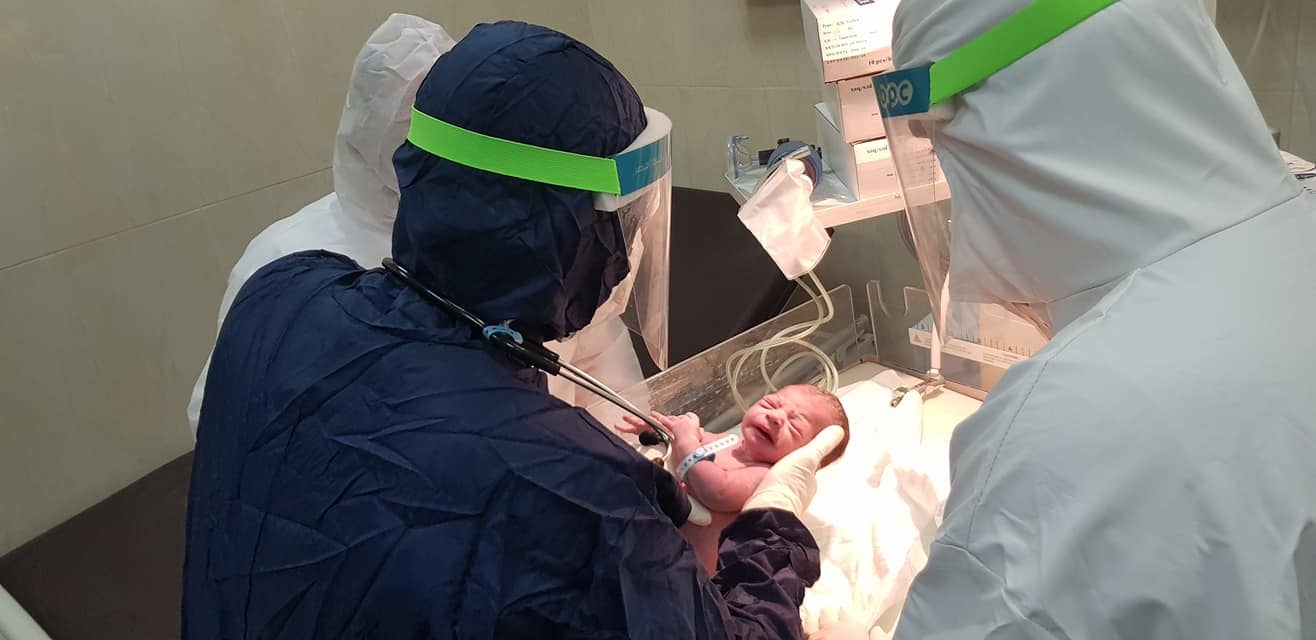
baby boy born in Palestine- Health Care workers in protective gear ©UNFPA Palestine
4. Hospitals and quarantine centres must provide menstrual hygiene supplies
People in hospitals and quarantine centres are typically unable to obtain their own menstrual hygiene products. Facility managers must therefore ensure adequate supplies are available, and staff must be trained to sensitively meet these needs.
One woman noted people in her quarantine centre needed more sanitary napkins than were provided. “Each woman experiences her menstrual period differently, some more intensely than others,” she said.
UNFPA and UNICEF are working with partners, including UN Women, to supply dignity kits containing hygiene items such as soap and sanitary napkins to quarantine facilities in Yemen, El Salvador, and elsewhere.
5. Vulnerable people face more barriers to menstrual hygiene supplies and care
People who already faced barriers to accessing menstrual supplies and health services are seeing these challenges grow.
The closure of stores and public transport, rising costs and increasing economic uncertainty are all putting menstrual hygiene supplies out of reach for those in poverty. In some places, there are reports people are resorting to using socks to soak up menstrual blood.
Circumstances are even more fraught for people with disabilities, people in prisons, refugees and migrants, shelter residents and transgender men, who could all see diminished access to supplies and reduced privacy during lockdowns. One woman in a detention in Kirkuk, Iraq, told UNFPA, “Being here makes us feel forgotten… but our intimate needs matter.”
Dildar Salamanca, a UNFPA humanitarian expert working on the border between Venezuela and Colombia, recalls what can happen when migrants do not have the supplies they need: “I witnessed, once… a girl with her period, and she could not get up because she had no sanitary towels and was sitting on top of a plastic bag… These conditions have worsened due to social isolation amid the COVID-19 emergency, in which women must prioritize access to food and water over personal care items.”
UNFPA is providing dignity kits to people in domestic violence shelters and detention centres. Where possible these supplies come alongside additional support, such as messages about preventing COVID-19, as well as services like psychosocial support for people experiencing distress over increased isolation. UNICEF is also supplying water and sanitation items and menstrual hygiene supplies to children in specialized correctional institutions, health centres and residential care homes.
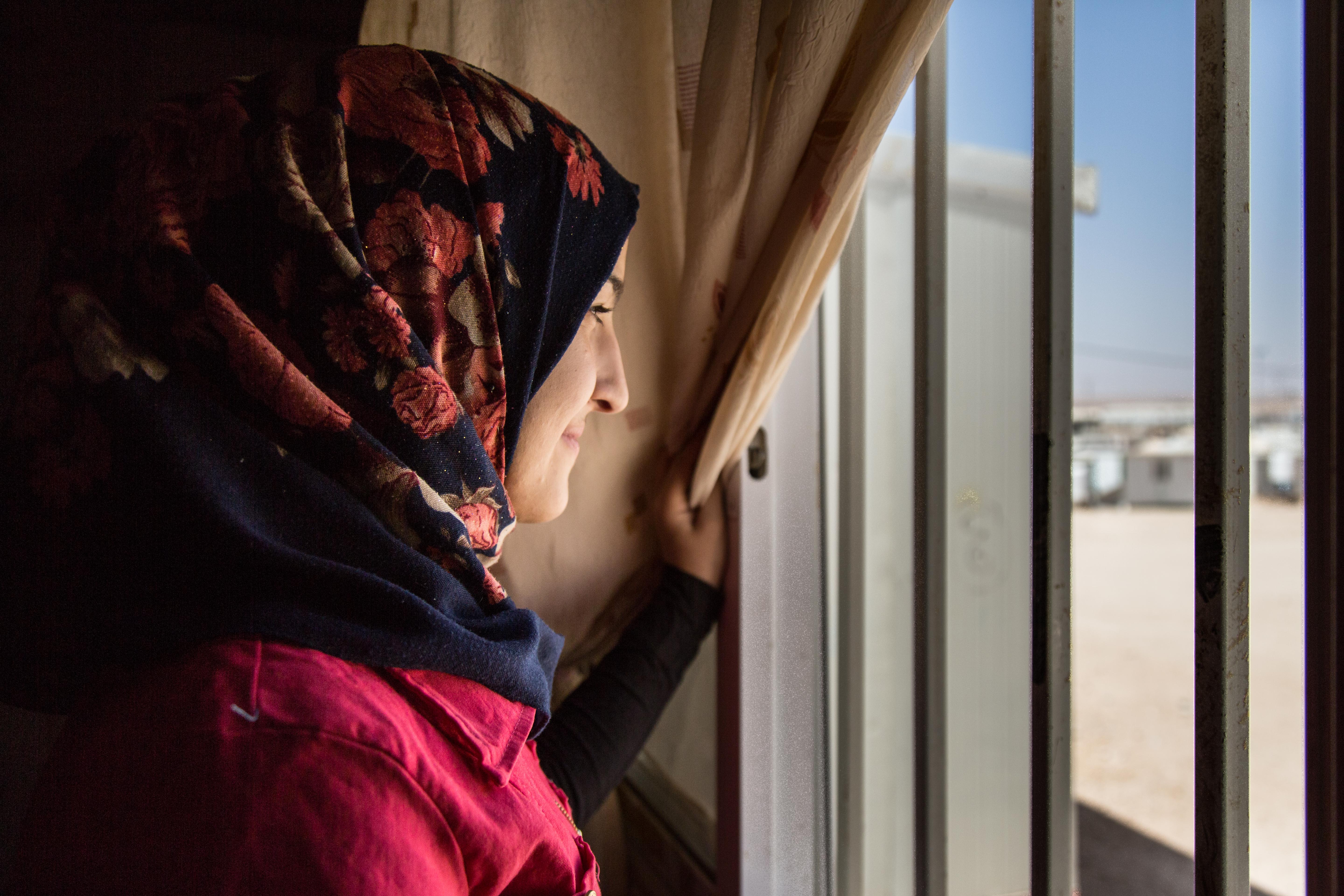
6. COVID-19 threatens the rights and health of people who menstruate
Gender inequality, extreme poverty, humanitarian crises and harmful traditions can all turn menstruation into a time of deprivation and stigma. These vulnerabilities are only increasing under the pandemic, as access to sexual and reproductive health services and information are decreasing.
And opportunities to bust myths and promote rights have been curtailed. For instance, last year’s Menstrual Hygiene Day saw 726 on-the-ground events in 74 countries, where people advocated an end to menstruation taboos and stigmas. Today, such events are not possible.
7. COVID-19 prevention and good menstrual health and hygiene go hand-in-hand
Water, sanitation and hygiene services are essential both for menstrual hygiene and for COVID-19 prevention. Yet efforts to provide these services are being undermined.
Communities face stock outs of supplies such as soap, sanitizers and other cleaners. Water and sanitation services in emergency settings could be threatened by shortages in maintenance staff and resources, UNICEF says. All of this will have an adverse impact on both the COVID-19 response and the health and rights of people who menstruate.
8. Information about menstrual health and hygiene has been disrupted by the pandemic
Disruptions to school and health services are making basic information about menstrual health and hygiene less available. In addition, women and girls are less likely to have replacement sources of information, due to their lower Internet access and literacy rates.
More than ever, we must find new, creative ways to educate people about menstruation.
UNICEF and UNFPA are working to dispel rumours and spread positive, factual messages about menstruation via public service announcements and educational messaging. For instance, UNFPA has created public service videos and messages to raise awareness about menstrual health, ranging from helping parents provide accurate information to their children, to teaching people to make their own reusable menstrual products. And UNICEF is launching its Oky Period Tracker App for girls, which will provide information on both menstruation and COVID-19.
But more efforts are needed -- both to educate people and to end stigma and shame.
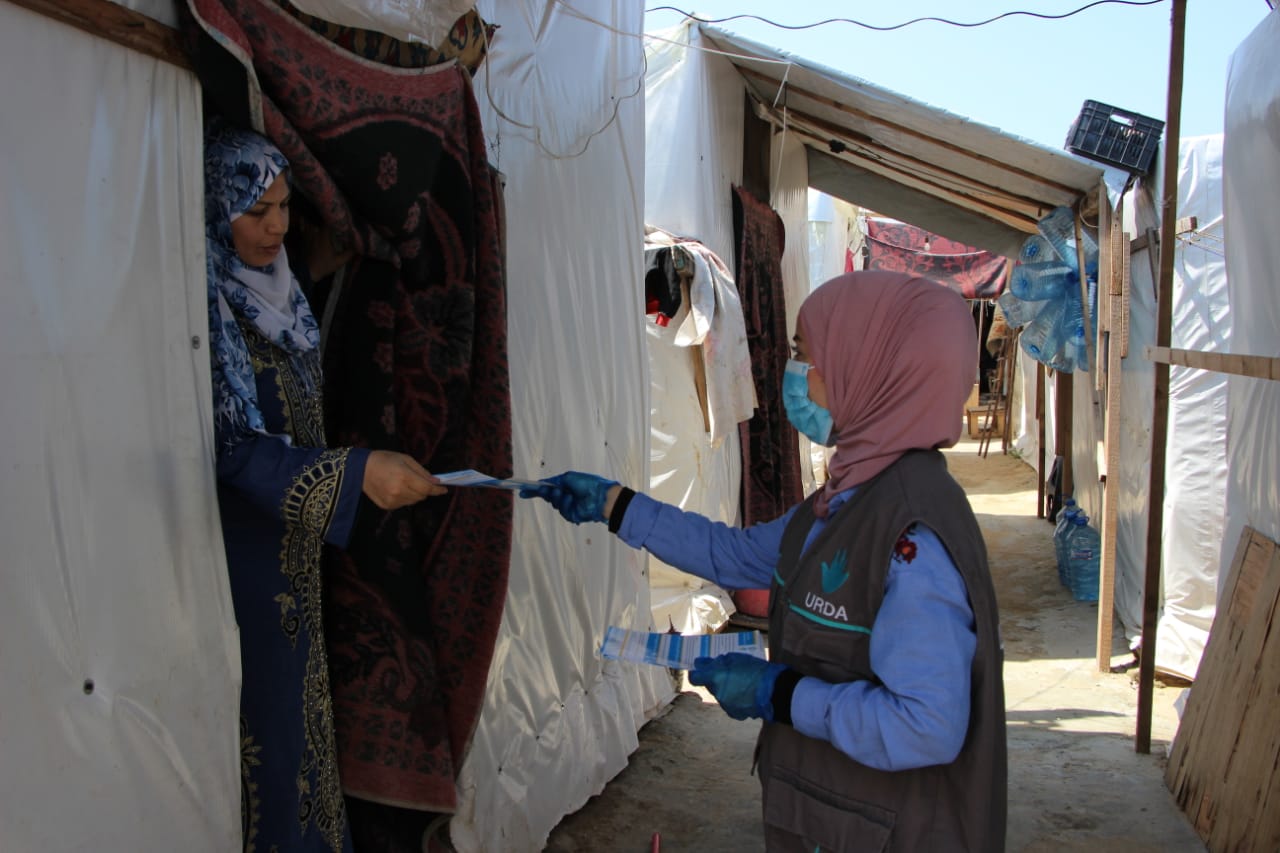
Distributing Brochures and Posters in Barlias-Al Awdah and Al Yasmine Camp ©UNFPA Lebanon
9. Harmful menstruation traditions are increasing vulnerability during the pandemic.
Menstrual taboos and traditions lead to exclusion and vulnerability even in normal circumstances. Under the pandemic, this situation could worsen: Some traditions call for menstruating people to stay in menstrual huts or relatives’ homes, practices that could affect social distancing. Other traditions prohibit menstruating people from washing or touching their genitals, or hold that menstruation pollutes water sources or toilets.
Fortunately, in at least some instances, COVID-19 prevention efforts are taking priority over such traditions. Several women activists in western Nepal told UNFPA that menstruating women and girls are now staying in separate rooms of their homes rather than going to menstrual huts or cowsheds. "They wear masks and wash hands regularly,” one advocate, Pramila Rokaya, said.
But more efforts are needed to ensure all people are able to engage in COVID-19 prevention measures -- even during menstruation.

